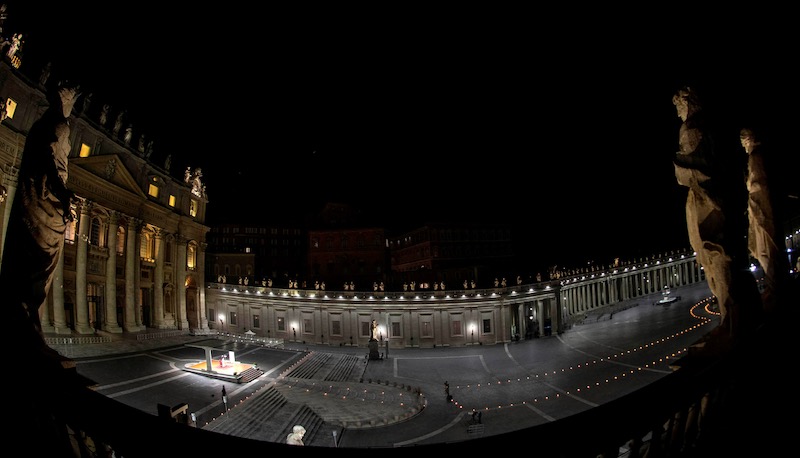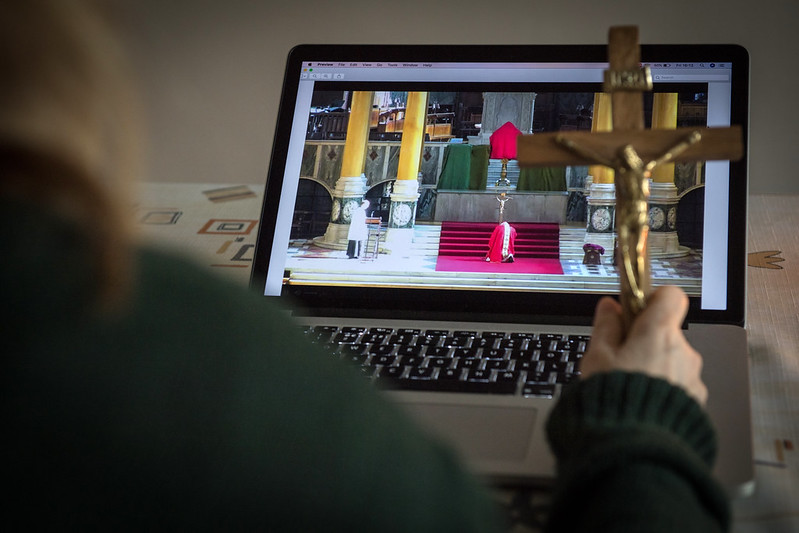The Archbishop of Westminster has spoken eloquently of the spiritual impact of the Covid-19 pandemic, and how to find hope for the future.
Speaking on BBC Radio 4's Sunday programme, he agreed with presenter William Crawley that it is the "strangest" Easter ever, with Christians unable to go to church to celebrate the Resurrection. However, in the Catholic Church, priests are still able to enter their own churches and say Mass, which can be streamed to the faithful.
Normally at this time, Christians would be going to church, greeting each other and enjoying the "uplift" that Easter brings.
"But we are trying," he said. "And many many people are reaching out to each other in all sorts of innovative ways." He said everyone was aware of the use of the internet and the telephone. The radio is important too, for those without good internet access, and the Cardinal himself led an act of worship and preached a homily across all 39 BBC local radio stations this morning.
Priests had the challenge of relating the full gospel message while speaking also to the present day. "It's very important that the gospel message does not simply become one of help your neighbour, and it doesn't duck the notion that in the death and resurrection of Jesus, the darkest things of our reality are embraced by God. That's becoming more clear at the moment."
He said it struck him forcefully that Jesus died by asphyxiation, which is how people are dying of coronavirus. "So in these moments when we sense our need, our helplessness, there's a huge importance in centring on the fact that in the life, death and resurrection of Jesus, God enters the darkest of our places and then transforms them."
Death is not the end, but entry into a life in God. "As we listen daily to the death toll – I've never known a time when the first item on the news is the number of people who have died – as we listen to the death toll it's so important that we keep in view that longer horizon, that greater horizon, that this death is not the end. We have to live by the perspectives of the horizon of eternity."
He said society had learned a lot and was continuing to do so. But he feared that the longer it went on, the harder it was to hold on to the "sparks of grace" that were emerging. The place of the home as a place of prayer was becoming stronger. "What this tells us is that God gives us the gifts and grace that we need. We see what is essential coming right to the fore." The peripherals have to be put to one side, he said.
Earlier, in the Easter vigil that he celebrated alone at Westminster Cathedral and which was streamed online, he spoke about how the Resurrection "changes radically the way we understand ourselves and the unfolding of our lives. In the midst of this awful pandemic, let's ponder it joyfully and carefully."
The Resurrection "is the work of the Godhead: the desire of the Father to show forth his merciful love for a stricken people, the obedience of the Eternal Word through whom all things are made, achieved in the power of the Holy Spirit. Here the love of God recreates the work of his hands," he said.
He also referred to one of the survivors of Covid-19 who spoke about his recovery through intensive care. Hylton Murray-Philipson, a farmer, spent 12 days in intensive care. Interviewed on BBC Radio 4's Today programme, he credited the nurses and health service for his recovery. But he also said: “One of the very powerful images I had was the image of Jesus calming the storm on the Sea of Galilee and that just came to me and I like to think that it was Jesus Christ coming to me and helping me in my hour of need.”



 Loading ...
Loading ...